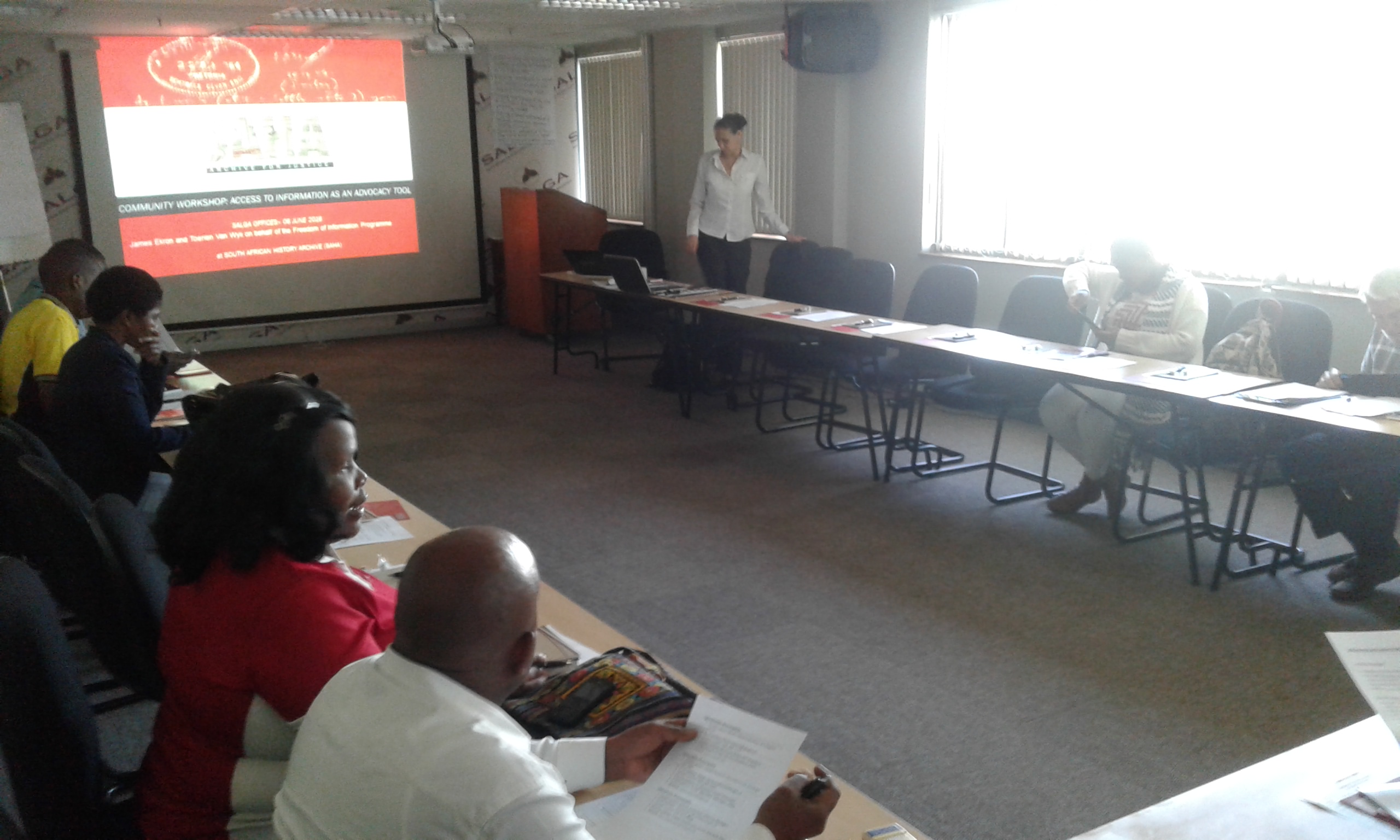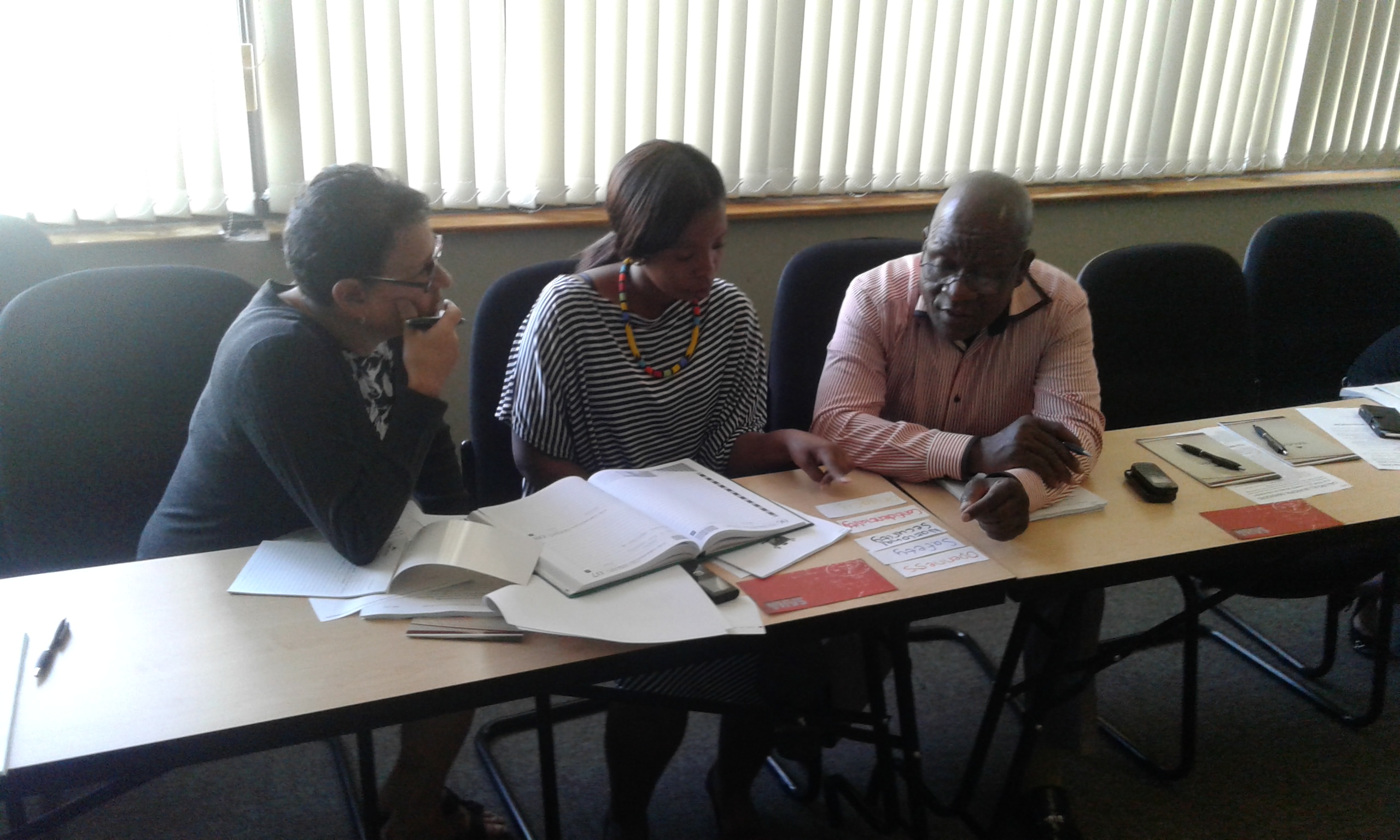A report back on SAHA's training to local government and activists around the Promotion of Access to Information Act.
As part of its continued work around access to information in South Africa, the South African History Archive (SAHA) began a project of engaging with local government and the communities they served in 2015 to increase the level of awareness and use of the Promotion of Access to Information Act, 2000 (PAIA). There is a tendency to forget that access to information does not just occur at the highest levels of government. Oftentimes, local libraries and municipal noticeboards are the way in which citizens find out where and when their Council is due to meet, when the next roadshow is coming or how a person can find more information. With this in mind, SAHA has continued with phase two of its local government project when we visited the the South African Local Government Association’s offices in Durban on June 06th and 07th as we hosted two days of training for muncipal officials and community activists.
Access to information on the local level is a vitally important and underdeveloped struggle for justice. Without efficient record keeping and an efficient mechanism to handle requests for information from people on the ground, the level of access to information achieved at the local level will fall short of the constitutional requirements established by the Constitution and, subsequently, PAIA. Access to information, frequently, enables people to enforce rights connected to the information they seek. Once a housing list, for example, designates who is to receive which house and where, those excluded from the list are able to question that decision. The right to receive information, therefore, intersects with many other rights and is necessary for the protection and enforcement of those rights.
On the first day, we invited members of local communities in KwaZulu Natal to attend a full day workshop on how they could use PAIA as an advocacy tool within their communities. The Right2Know (R2K) Campaign partnered with us by extending the invitation to receive training to its members to inform and equip local activists with the knowledge to ensure better access to information on the local level. The workshop was well-attended and full of vibrant discussion as R2K activists engaged around their communal needs and blockages to accessing information locally.

As the room of activists and community leaders began a frank discussion on the problems facing them and their communities, patterns began to emerge. Non-political meetings were turned into party rallies. Members who “asked too many questions” were asked “whether their membership was still existing?” Attempts for information on local clinics and their capacity, for example, were met with “you should talk to my boss” or “you didn’t come with a letter.”
There were technical challenges as well. Some participants noted that smartphones, the most readily available piece of technology for most people accessing the internet were often unable to read the drop-down menu of a municipal website. Frequently, the amount of data required to process the page caused the website to shut down, removing those from the process who may not have access to a desktop or the means to use one. Terms such as “fiscal deficit” were said to be used in town meetings where most of the attendees had none of the technical terminology and no available glossary for translation. The hosting of certain important community meetings at the Hilton Hotel, for example, were considered prohibitive for those required to travel late at night. Similarly, hosting events during the day excluded those who worked and would be unable to attend those meetings as tax payers.
Clearly, there was no shortage of the challenges facing the participants and protagonists of local government, however, the attendee activists left feeling sure in their knowledge around PAIA with ideas to use the legislation in enforcing their right to access information.
The second day of training brought together various municipal employees, in their capacity as officials working within the framework of PAIA from day to day, to discuss and analyse the ways in which their separate municipalities can improve the delivery of information to local communities. Participants from the municipalities of eThewkini, Umzimkhulu, Umlalazi and uMhlahathuze were present, however, despite being invited, there was no attendance by any of the municipal managers of these municipalities. It is our hope that in the future municipal managers will prioritise their response to PAIA, especially considering that they can be imprisoned and/or fined for failure to prepare a PAIA manual for use amongst their constituents.

Nevertheless, the workshop was highly productive with the municipal employees sharing their various challenges and approaches to releasing information to members of their respective wards. A recurring theme throughout the training was the issue of proactive disclosure. Whilst PAIA does allow for a requester to approach their municipality for information under the request process, the kinds of information sought by local communities does not generally require a request. There are documents which must be made proactively available to everyone seeking access to them, for example, the municipal budget, by-laws, Integrated Development Plans and alike. These documents are the lifeblood of a community and, with good reason, are required to be made automatically available to everyone.
As part of the preparation for the training, SAHA submitted various requests to the municipalities in the room for records relating to proof of their consultations with their local communities. Having obtained a particularly exemplar response from Umzimkhulu municipality, the other participants to the training were able to review their peers’ response and see how responding to a PAIA request, successfully, is both possible and happening daily in the offices of dedicated, hardworking municipal officials. This proved to be a powerful example to the officials on how PAIA compliance is relatively achievable once the municipal body has a sufficient understanding of the procedure to be followed.
Ultimately, the training provided a valuable opportunity for the participants to receive shared learning, express common problems to local municipalities and strategise around ways in which the level of PAIA compliance increases by leaps and bounds. One municipal official indicated that they “have seen areas for improvement that can be implemented immediately.” It is our hope that the training session would spark the beginning of a process of continuous improvement and development around PAIA within local municipalities. As this programme continues through its second year, we hope to uncover and unlock more areas for improvement going forward.






